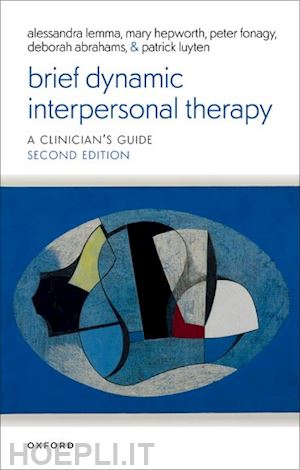Alessandra Lemma is a Fellow of the British Psychoanalytical Society and Consultant at the Anna Freud National Centre for Children and Families. She is Visiting Professor, Psychoanalysis Unit, University College London and is Visiting Professor, Istituto Winnicot, Rome. For many years she worked at the Tavistock Clinic where she was, at different points, Head of Psychology and Professor of Psychological Therapies. She was the Editor of the New Library of Psychoanalysis book series (Routledge) for ten years until 2020 and was one of the regional Editors for the International Journal of Psychoanalysis until 2018. She has published on psychoanalysis, the body, trauma, the impact of digital technologies and ethics. Peter Fonagy, OBE, Professor of Contemporary Psychoanalysis and Developmental Science, Head of Division for Psychology and Language Sciences, UCL; Chief Executive of the Anna Freud National Centre for Children and Families and Executive Clinical Director, UCLPartners Mental Health and Wellbeing Programme. His clinical and research interests lie in early attachment relationships, social cognition, borderline personality disorder and violence. A central focus has been an innovative research-based psychodynamic therapeutic approach, mentalization-based treatment, which was developed in collaboration with a number of clinical sites in the UK and USA. Publishing over 630 scientific papers and 21 books. Deborah Abrahams is a psychoanalyst and clinical psychologist practising in North West London. She is currently the Programme Director of DIT at the Anna Freud Centre and involved in developing, delivering and evaluating the 20-Day DIT training. She co-wrote A Clinical Guide to Psychodynamic Psychotherapy (Routledge, 2021). Mary Hepworth is a Professor of Psychoanalysis at University Collge London. After training in clinical psychology at Oxford, she worked in public health settings for ten years, and trained as a psychoanalyst. Her academic career has been at University College London (UCL), teaching psychology and psychoanalytic theory, and researching in adult and child attachment, treatment outcomes across therapies, and the blending of quantitative and qualitative research methods, especially analysis of interview narratives. She also worked for several years at the Anna Freud Centre which is affiliated with UCL and hosted some of the research and treatment developments, including DIT; she served as Professional Director there 2003-13. In parallel, she has also maintained a clinical practice in psychotherapy and psychoanalysis. Patrick Luyten, PhD is Professor of Clinical Psychology at the Faculty of Psychology and Educational Sciences, University of Leuven (Belgium) and Professor of Psychodynamic Psychology at the Research Department of Clinical, Educational, and Health Psychology, University College London (UK). His main research interests are disorders from the affective spectrum (i.e., depression and stress- and pain-related disorders), and personality disorders. In both areas he is involved in basic research and in interventional research.











